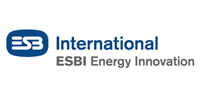ESB International (ESBI) has been selected as part of a consortium to support the establishment of a clean energy network between the EU and the Gulf Cooperation Council (GCC) countries. The network aims to promote greater technological and policy cooperation between the EU and the Gulf countries in the area of clean energy.
Under the three-year framework agreement, ESBI will head up an expert group on electricity interconnections and market integration. This is one of five expert groups comprising leading academics, professionals and policy makers from the EU and GCC countries that will work together on a range of research and knowledge sharing initiatives. ESBI will play an active role across all five of the expert groups.
The areas covered by the network will include:
- Renewable energy sources
- Energy demand side management and energy efficiency
- Clean natural gas and related clean technologies
- Electricity interconnections and market integration
- Carbon capture and storage
ESBI engineering solutions manager Billy Byrne said: “ESBI’s appointment as technical advisor to the EU-GCC network recognises the company’s expertise in clean energy technology and provides an opportunity to showcase Ireland’s leadership in this area. It will also give us access to a wealth of research, policy ideas and market intelligence from Europe and the Gulf states that will help to further develop our competence in this area.”
The EU-GCC Clean Energy Network is part of a wider initiative by the EU to establish a long-term strategic relationship with the GCC countries. The network will act as a catalyst for practical cooperation between the two regions by facilitating joint initiatives in the areas of research, new technology, demonstration projects and communications, as well as providing associated policy support. ESBI is working on the project as part of a consortium led by the National Technical University of Athens (NTUA).
ESBI is a wholly-owned subsidiary of ESB. For over 30 years, it has been providing engineering consultancy services to international clients, starting with its first project in Bahrain in 1976 where it currently has a resident staff of more than 35 people.

